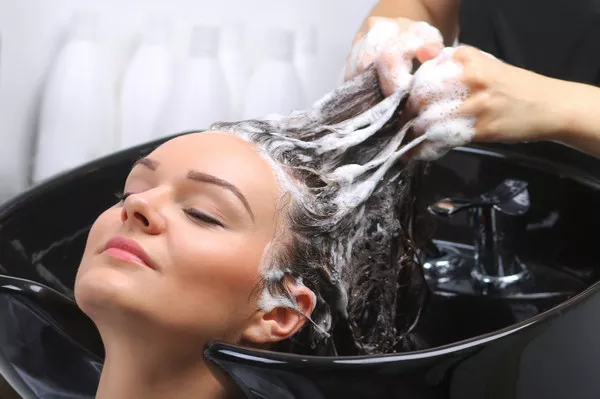Managing oily hair can be a common concern for many women, requiring a specialized hair care routine to keep excess oil at bay while maintaining healthy and vibrant locks. From choosing the right products to establishing a consistent routine, here are essential tips and advice for women dealing with oily hair.
1. Choose the Right Shampoo:
The foundation of an effective hair care routine for oily hair begins with the right shampoo. Opt for a clarifying or sulfate-free shampoo specifically designed for oily or greasy hair. These shampoos help to remove excess oil and product buildup without stripping the hair of its natural oils.
2. Frequent Washing:
Women with oily hair may find it beneficial to wash their hair more frequently than those with other hair types. Washing every other day or even daily can help control excess oil production and keep the hair looking fresh. However, be mindful not to overwash, as this can lead to dryness and increased oil production as the scalp compensates.
3. Use Lukewarm Water:
When washing oily hair, use lukewarm water instead of hot water. Hot water can stimulate the sebaceous glands in the scalp, leading to increased oil production. Lukewarm water helps to cleanse the hair without triggering excess oil secretion.
4. Condition Strategically:
While it’s essential to keep the hair moisturized, those with oily hair should apply conditioner strategically. Focus on the mid-lengths to the ends, avoiding the scalp area. Consider using a lightweight, oil-free conditioner to prevent weighing down the hair.
5. Avoid Heavy Hair Products:
Heavy hair products, such as thick serums and creams, can contribute to oil buildup. Opt for lightweight, water-based products that won’t weigh down the hair or exacerbate oiliness. Look for labels indicating “oil-free” or “non-comedogenic.”
6. Dry Shampoo:
Dry shampoo is a lifesaver for managing oily hair between washes. It helps absorb excess oil, adds volume, and provides a refreshed look. Apply dry shampoo to the roots, massage it in, and comb through for even distribution.
7. Regular Scalp Massages:
Scalp massages stimulate blood circulation and can help regulate oil production. Incorporate a gentle scalp massage into your hair care routine to promote a healthier scalp environment.
8. Avoid Touching Your Hair:
Touching your hair throughout the day can transfer oil from your hands to your strands. Minimize touching and brushing your hair excessively, as this can spread oil and make the situation worse.
9. Balanced Diet:
A balanced and nutritious diet plays a role in the health of your hair. Foods rich in vitamins and minerals, such as fruits, vegetables, and lean proteins, can contribute to overall hair health and potentially help regulate oil production.
10. Consult a Professional:
If oily hair persists despite a consistent routine, consider consulting a professional stylist or dermatologist. They can assess your hair and scalp condition, provide personalized advice, and recommend specific products or treatments.
FAQs on Women’s Hair Care for Oily Hair:
Q1: Can I skip conditioner if I have oily hair?
A1: While it’s essential to condition your hair, focus on applying conditioner to the mid-lengths and ends, avoiding the scalp. Consider using a lightweight, oil-free conditioner to prevent added weight and oiliness.
Q2: How often should I wash my oily hair?
A2: Women with oily hair may benefit from washing every other day or even daily. However, the frequency can vary based on individual hair and scalp needs. Find a balance that keeps your hair clean without causing dryness.
Q3: Are there specific hairstyles that work well for oily hair?
A3: Styles that keep the hair off the face, such as ponytails, buns, or braids, can help minimize contact with oil from the face and forehead. Experiment with different hairstyles to find what works best for you.
Q4: Can a change in diet help manage oily hair?
A4: A balanced and nutritious diet can contribute to overall hair health, potentially helping regulate oil production. Foods rich in vitamins and minerals, such as fruits, vegetables, and lean proteins, support hair health from within.

